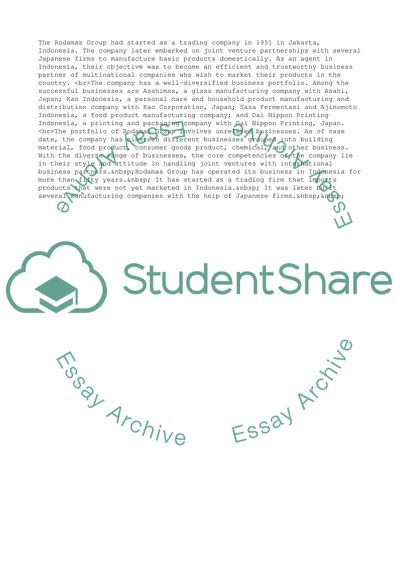Cite this document
(Core Competencies of Rodamas Group Case Study Example | Topics and Well Written Essays - 3500 words, n.d.)
Core Competencies of Rodamas Group Case Study Example | Topics and Well Written Essays - 3500 words. Retrieved from https://studentshare.org/business/1730462-case-analysis-strategic-management
Core Competencies of Rodamas Group Case Study Example | Topics and Well Written Essays - 3500 words. Retrieved from https://studentshare.org/business/1730462-case-analysis-strategic-management
(Core Competencies of Rodamas Group Case Study Example | Topics and Well Written Essays - 3500 Words)
Core Competencies of Rodamas Group Case Study Example | Topics and Well Written Essays - 3500 Words. https://studentshare.org/business/1730462-case-analysis-strategic-management.
Core Competencies of Rodamas Group Case Study Example | Topics and Well Written Essays - 3500 Words. https://studentshare.org/business/1730462-case-analysis-strategic-management.
“Core Competencies of Rodamas Group Case Study Example | Topics and Well Written Essays - 3500 Words”, n.d. https://studentshare.org/business/1730462-case-analysis-strategic-management.


